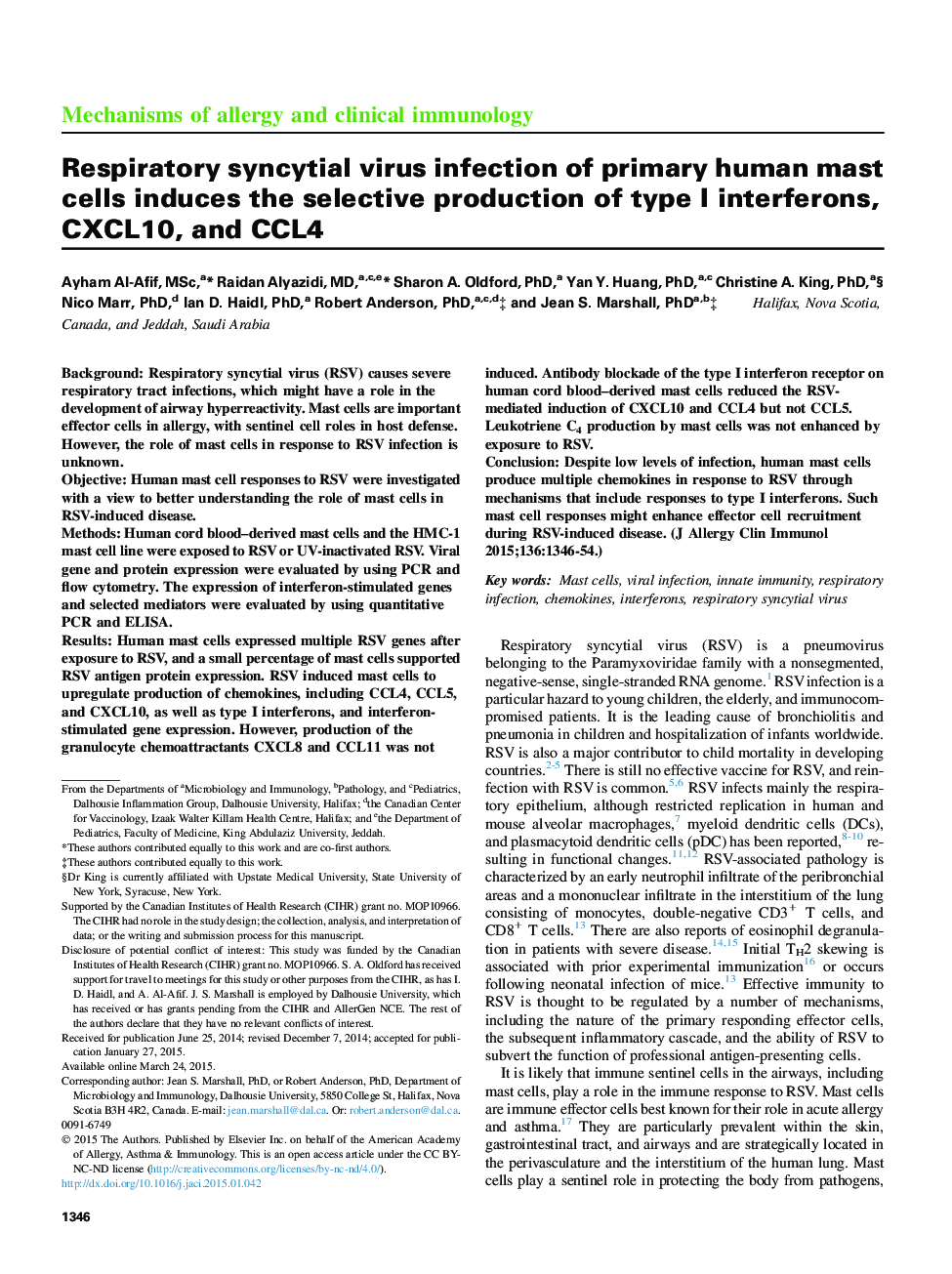| کد مقاله | کد نشریه | سال انتشار | مقاله انگلیسی | نسخه تمام متن |
|---|---|---|---|---|
| 6063260 | 1201849 | 2015 | 10 صفحه PDF | دانلود رایگان |

BackgroundRespiratory syncytial virus (RSV) causes severe respiratory tract infections, which might have a role in the development of airway hyperreactivity. Mast cells are important effector cells in allergy, with sentinel cell roles in host defense. However, the role of mast cells in response to RSV infection is unknown.ObjectiveHuman mast cell responses to RSV were investigated with a view to better understanding the role of mast cells in RSV-induced disease.MethodsHuman cord blood-derived mast cells and the HMC-1 mast cell line were exposed to RSV or UV-inactivated RSV. Viral gene and protein expression were evaluated by using PCR and flow cytometry. The expression of interferon-stimulated genes and selected mediators were evaluated by using quantitative PCR and ELISA.ResultsHuman mast cells expressed multiple RSV genes after exposure to RSV, and a small percentage of mast cells supported RSV antigen protein expression. RSV induced mast cells to upregulate production of chemokines, including CCL4, CCL5, and CXCL10, as well as type I interferons, and interferon-stimulated gene expression. However, production of the granulocyte chemoattractants CXCL8 and CCL11 was not induced. Antibody blockade of the type I interferon receptor on human cord blood-derived mast cells reduced the RSV-mediated induction of CXCL10 and CCL4 but not CCL5. Leukotriene C4 production by mast cells was not enhanced by exposure to RSV.ConclusionDespite low levels of infection, human mast cells produce multiple chemokines in response to RSV through mechanisms that include responses to type I interferons. Such mast cell responses might enhance effector cell recruitment during RSV-induced disease.
Journal: Journal of Allergy and Clinical Immunology - Volume 136, Issue 5, November 2015, Pages 1346-1354.e1